What should you do for a dislocated jaw? What is a dislocated jaw and is it dangerous? There are various treatment methods for a dislocated jaw, including applying heat, manipulation, and surgery. Each method is used for specific cases or, more accurately, the degree of jaw misalignment for each individual.
This condition can arise from various causes such as loud snoring, excessive laughter, or physical impact. Along with that, there are many other symptoms that you should be aware of.
What is a dislocated jaw?
A dislocated jaw, or temporomandibular joint (TMJ) disorder, is a condition that occurs when the jawbone is displaced from its normal position.
This is a condition that often occurs in individuals with a history of previous jaw problems. However, it can also occur in individuals with loose jaw muscles and ligaments due to temporomandibular joint dysfunction.
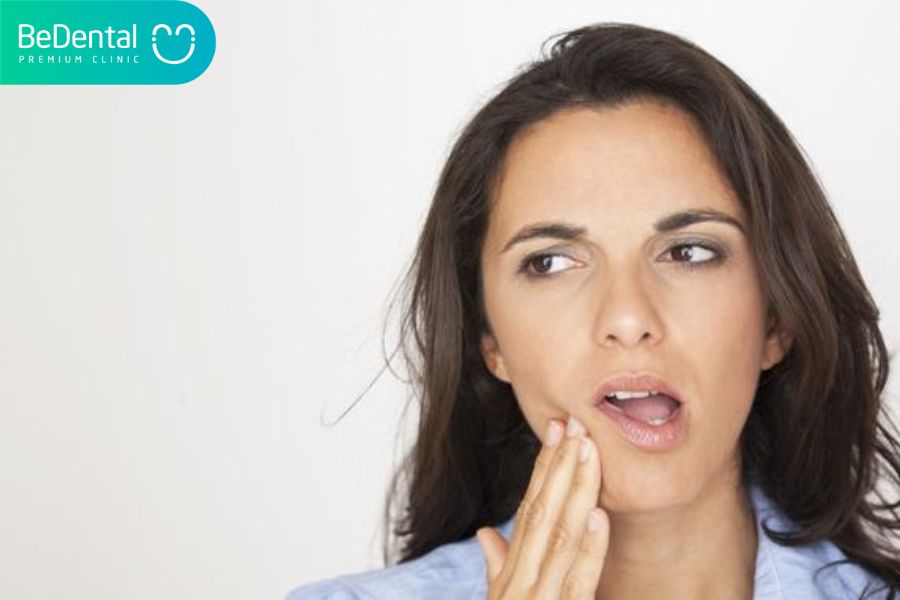
Causes of jaw dislocation
Jaw dislocation is a condition related to the dental and facial area. It occurs when the jaw muscles are strained and uncomfortable, often due to pressure or stress in daily life, or habits such as nail-biting, chewing gum excessively, or improper chewing.
The main causes of jaw dislocation include:
- Pressure and stress in daily life: Stressful or continuous pressure situations can lead to tension in the jaw muscles, resulting in jaw dislocation.
- Improper chewing habits: Chewing gum excessively or chewing food excessively, especially hard foods, can strain the jaw muscles and lead to jaw dislocation.
- Dental issues: Oral problems such as cavities, jaw misalignment, or crooked teeth can cause jaw dislocation.
- Trauma: Injuries such as accidents, collisions, or fights can cause jaw dislocation.
- Other medical conditions: Some conditions such as jaw inflammation, Parkinson’s disease, or nerve-related issues can cause jaw dislocation.
Home remedies for jaw dislocation
Jaw dislocation or temporomandibular joint (TMJ) disorder is a common condition, not only in adults but also in children. Depending on the severity and symptoms, there are different treatment methods.
However, the initial trend for most people is to try to treat jaw dislocation at home.
Treating jaw dislocation at home is relatively simple and only requires you to follow the steps correctly and be patient with the following:
Rest and gentle relaxation: After experiencing jaw dislocation, it is important to take additional time to rest and relax, and sleep in the correct position, which is lying on your back. Especially avoid strenuous movements or strong impacts on the jaw area. During the first 6 weeks, avoid opening your mouth too wide.

Applying warm compress: To minimize pain and discomfort, use a warm compress and apply it to the swollen area of the jaw for 20 minutes each time. In the first few days, do this for 1-2 hours and gradually decrease to 3-4 times a day.
Change your diet: If you’re experiencing jaw pain, switch to softer foods and avoid eating foods that are too hard or require a lot of chewing.
By applying the jaw pain remedies mentioned above, the feeling of pain and discomfort in the jawbone will immediately disappear in just a few days. However, if the condition does not improve after applying these remedies, it is important to see a doctor.
What should you do for a dislocated jaw?
What should you do for a dislocated jaw? Depending on the severity of the jaw misalignment and accompanying symptoms, the doctor will examine and find the appropriate and effective treatment method. The two most commonly used methods for treating a dislocated jaw are manipulation and surgery.
In mild cases, the doctor will perform jaw manipulation. However, if the patient’s condition is more complex and the initial method is no longer effective, jaw surgery may be necessary.
Jaw manipulation
To perform jaw manipulation in a simple and pain-limiting manner, the doctor will first administer a pain-relieving medication to relax the muscles.
The patient is then positioned comfortably and in a way that is also comfortable for the doctor throughout the jaw manipulation process.
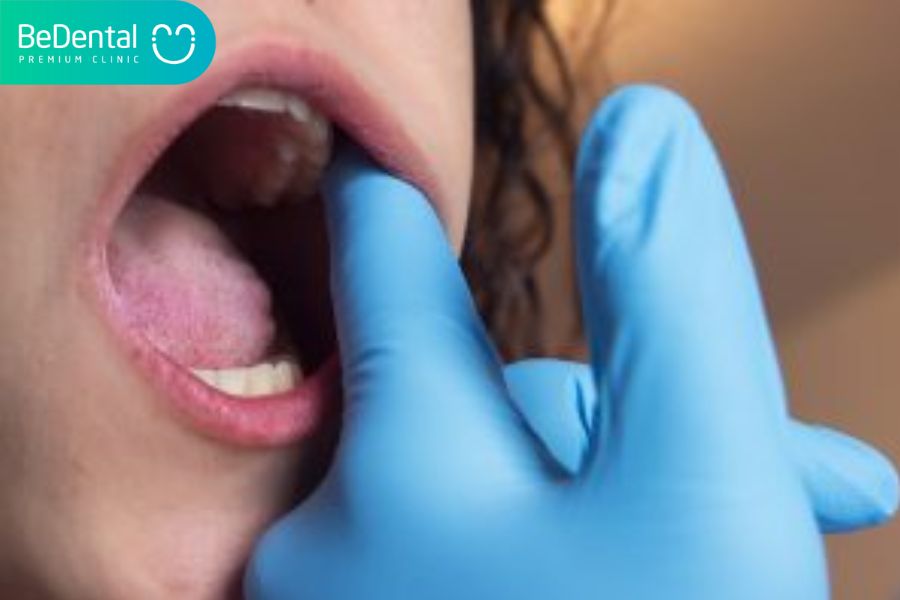
When performing jaw manipulation, the doctor will place specialized gauze pads on the lower chewing area of both sides of the jaw. Next, the doctor will use their thumbs with strong force to press down and backward on the misaligned jaw bone multiple times.
When the patient feels that the jaw bone has loosened and can move easily without pain, the bone has returned to its original position.
Jaw surgery
Jaw surgery is indicated for patients with severe and serious jaw trauma. However, there is no need to worry, as such cases do not occur frequently.
This is a method that directly involves intervention in the jaw bone and should be performed by specialists in oral and maxillofacial surgery. With an experienced and knowledgeable team of doctors, the quality and safety of the patient’s health can be ensured.
Is jaw dislocation caused by trauma?
Jaw dislocation can be caused by strong impact on the muscles and ligaments of the jaw bone, causing the jaw to shift from its position.
In addition, jaw dislocation can also be caused by the following factors:
- Inflammation in the nasal or throat area
- Improper sleeping position, especially for individuals who sleep on their back or stomach for a long time, or grind their teeth while sleeping
- Excessive laughing or yawning, and opening the mouth too wide while eating
- Overexertion or continuous heavy lifting, which can put pressure on the neck and shoulders and strain the muscles
- Chronic stress, fatigue, or prolonged periods of stress can also contribute to jaw dislocation.
Permanent Tooth decay treatment and causes
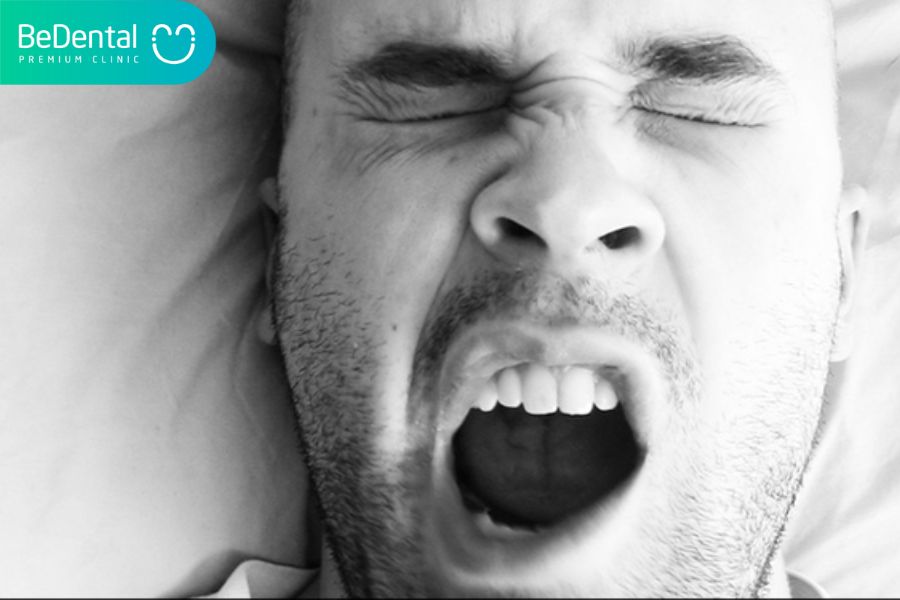
Jaw dislocation is one of the common joint inflammation conditions. Therefore, you should not be too worried when experiencing a dislocated jaw.
Symptoms of jaw dislocation
The symptoms of jaw dislocation are easy to recognize with the following signs:
- Pain and discomfort in front of the ear, ringing in the ear
When experiencing a dislocated jaw, the pain not only occurs in the jaw but also radiates to the head and ear, causing ringing in the ear and pain in front of the ear. Additionally, there may be a feeling of unclear or impaired hearing, affecting the internal organs of the ear.
- Stiffness in the neck and jaw
Typically, when a jaw dislocation occurs, the patient will feel stiffness in the neck and jaw. There may be a numb and achy sensation in the jaw, and difficulty in turning the neck, especially in the morning upon waking up.
- Clicking sound when opening the mouth
Jaw dislocation makes it difficult to open the mouth, and the patient may hear a clicking sound. This sound is caused by the impact on the joint bone, leading to the displacement of the muscles and ligaments of the jaw bone. The patient may have difficulty eating and chewing.
Many people, when experiencing a dislocated jaw, try to apply home remedies such as forcefully manipulating the jaw. This is completely not recommended. The reason is that if done incorrectly, it can cause further damage and severe pain and fatigue for the patient. It can even lead to serious complications such as a crooked mouth or misaligned jaw.
Therefore, when experiencing a dislocated jaw, patients should not take it lightly. It is necessary to seek medical attention immediately for appropriate and effective treatment.
What should and should not be done after treating a dislocated jaw?
Jaw dislocation is a condition that is difficult to self-heal and is prone to recurrence. Therefore, after being treated, there are some things to note about what should and should not be done:

+ Things to note after treating a dislocated jaw:
- Get enough sleep in the correct position.
- Eat soft food and avoid excessive chewing.
- Perform gentle jaw bone massage.
- Maintain a healthy lifestyle, reduce anxiety and stress.
- Avoid heavy labor and overexertion.
+ Things not to do after treating a dislocated jaw:
- Apply strong and frequent pressure on the jaw bone.
- Yawn loudly or laugh excessively.
- Prefer hard, tough, and crispy foods.
- Grind teeth while sleeping.
If you undergo jaw surgery to treat a misaligned jaw, it is necessary to follow the doctor’s instructions, especially regarding follow-up appointments. Jaw surgery directly impacts the jaw bone area.
Post-operative care greatly affects the results, particularly in terms of wound hygiene. Failure to ensure proper hygiene can lead to dangerous infections.
Reducing the recurrence of jaw dislocation:
To reduce the likelihood of jaw dislocation recurrence, you can apply the following methods:
- Change chewing habits: Avoid chewing gum, hard food, and using teeth to open objects or bite nails.
- Practice jaw muscle relaxation: Relaxation exercises for the jaw muscles and massaging certain points on the face can help reduce tension and the occurrence of jaw dislocation.
- Change sleeping positions: Avoid sleeping on the stomach and find a comfortable sleeping position for the jaw muscles.
- Limit pressure and stress: Avoid stressful situations and pressures, engage in stress-reducing activities such as yoga, tai chi, or participate in sports.
- Use a dental splint: A dental splint can help reduce jaw dislocation by reducing pressure on the jaw muscles and bones.
Tư vấn chuyên môn bài viết:
BÁC SĨ DƯƠNG THỊ THÙY NGA
BEDENTAL - TOP STANDARD DENTISTRY SYSTEM
In HANOI
Address 1: 7B Thi Sach St, Ngo Thi Nham, Hai Ba Trung Dist, Ha Noi. - 0934.61.9090
Address 2: No 129 Hoang Ngan, Yen Hoa, Cau Giay Dist, Ha Noi. - 0934.61.9090
In HO CHI MINH
Address 1: 53 -55 -57 Pho Duc Chinh St, Nguyen Thai Binh, Dist. 1, Ho Chi Minh. - 0766.00.8080
Working: 9am - 8pm everyday
Website: https://bedental.vn/en/
10 lợi ích giúp bạn quyết định bọc răng sứ có cần thiết không?


 Tiếng Việt
Tiếng Việt 한국어
한국어 日本語
日本語 中文 (中国)
中文 (中国)

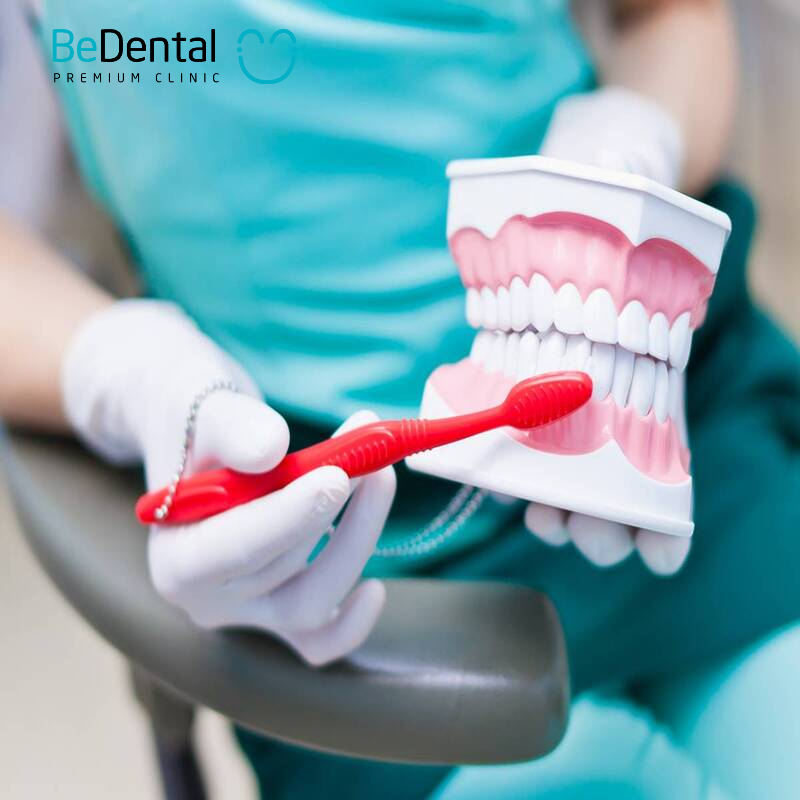
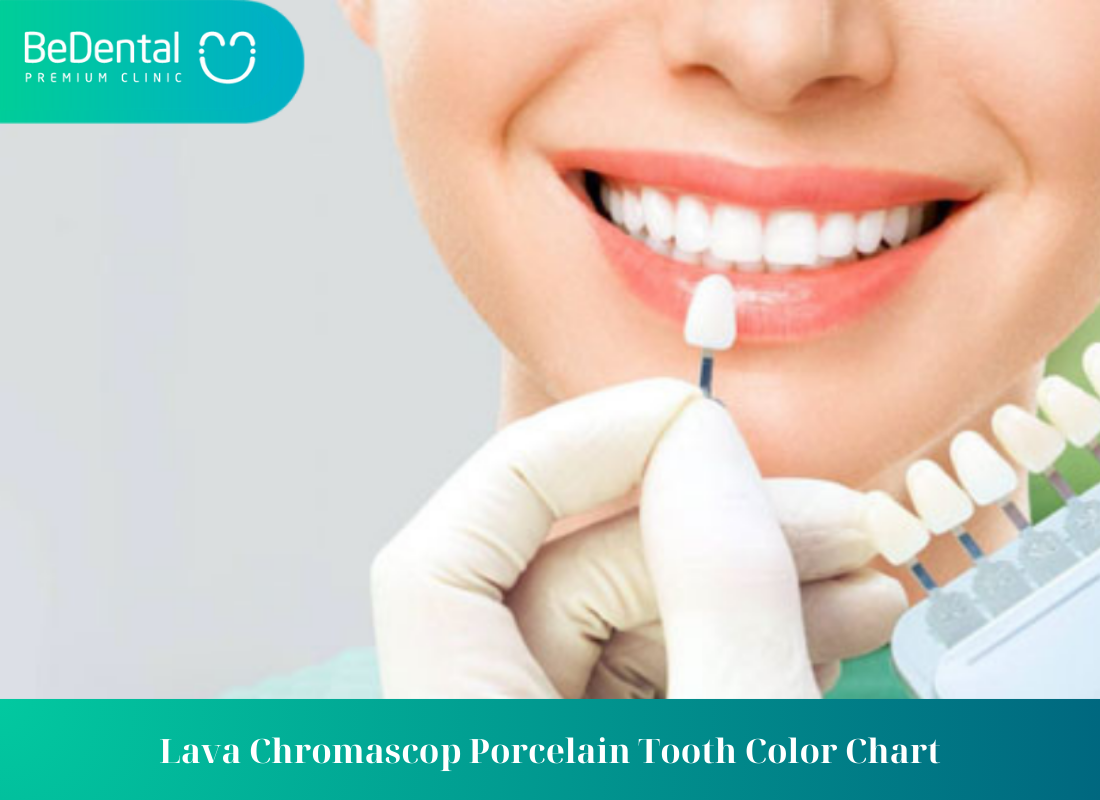
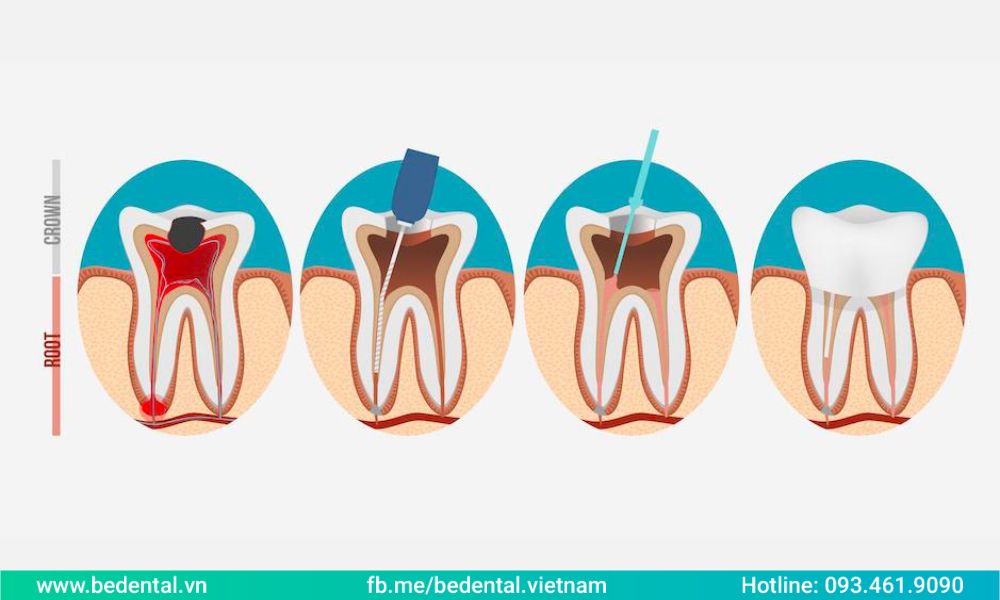
Pingback: How to Stop Bleeding after Wisdom Tooth Extraction? Some Ways to Control Bleeding – Be Dental
Pingback: What is Vecni Flour? How to use it? How old can children use it and some notes. – Be Dental
Pingback: Trần Thế Anh “exposes” BeDental Dental Clinic after 7 years of getting porcelain veneers – Be Dental
Pingback: How much does jawbone grafting cost? Latest price list. – Be Dental
Pingback: How does the “standard” deep tooth filling process occur? – Be Dental
Pingback: 1 Số Cách Ngăn Sâu Răng Phát Triển – Vì Sao Đánh Răng Thường Xuyên Vẫn Bị Sâu Răng – Be Dental
Pingback: Can I get dental Scaling and teeth whitening done at the same time? Should I get dental scaling regularly – Be Dental
Pingback: Choosing between dental fillings for tooth erosion teeth or dental crowns – Be Dental
Pingback: BROKEN TOOTH AND SOME WAYS TO FIX A BROKEN TOOTH COST-EFFECTIVELY – Be Dental
Pingback: Review the experience of getting wisdom teeth extracted at BeDental from A to Z! – Be Dental
Pingback: Consultation: Is Orthodontic Insurance Covered by Medical Insurance? – Be Dental
Pingback: What is Misaligned teeth eruption? Causes and some Methods to address Misaligned teeth eruption – Be Dental
Pingback: The Journey to Rescue from the Trap of Dental fraud – Pham Hong Thai – Techcombank Employee – Be Dental
Pingback: What is an implant-supported removable denture? Is it truly worth using? 4 advantages of an implant-supported removable denture. – Be Dental